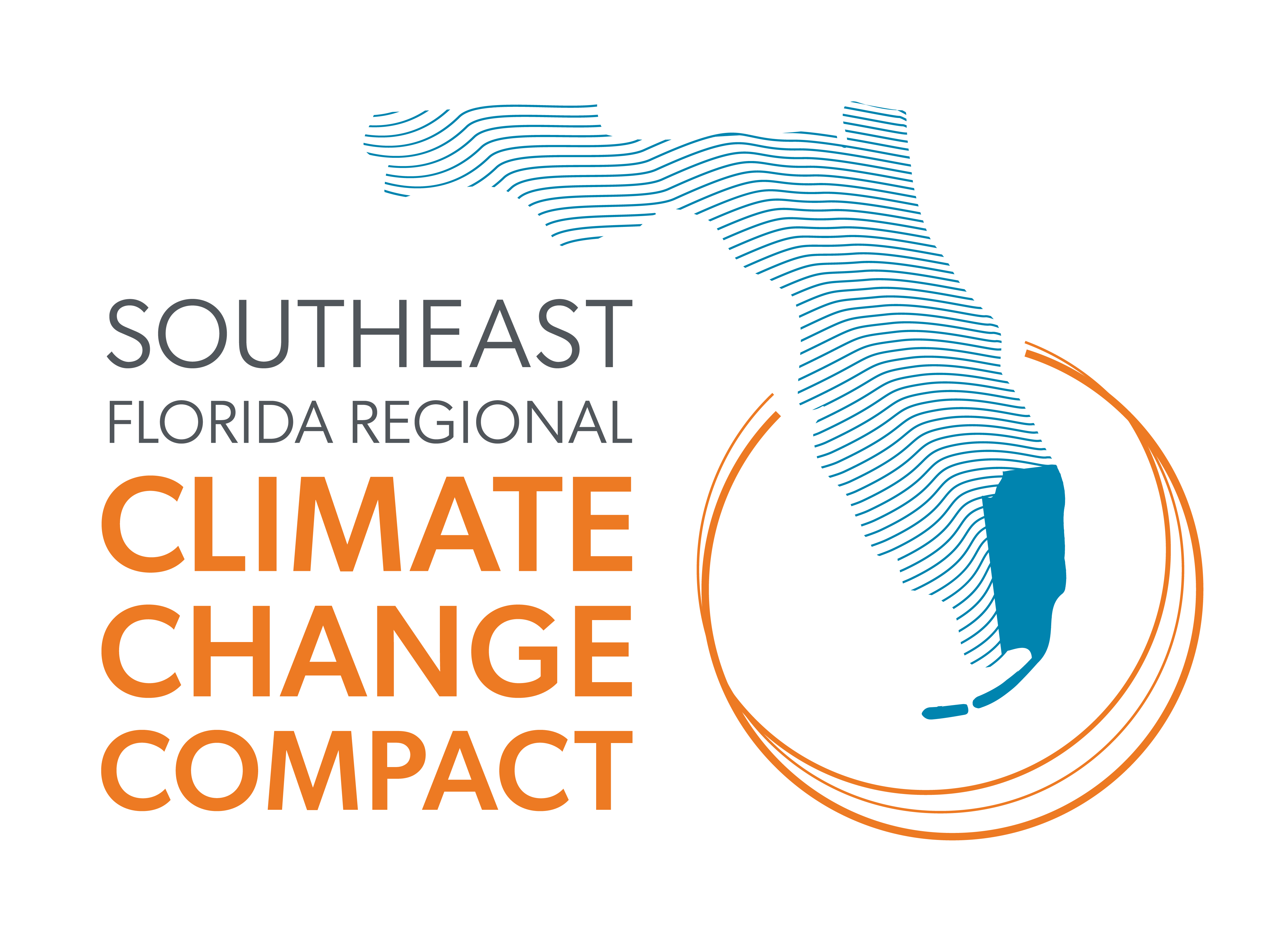
News
Interview with former municipal representative Carisse LeJeune
January 6, 2016

 Each Compact member county has a municipal representative serving on the Compact Steering Committee. Completing their rotation, Broward County representative Susy Torriente (Assistant City Manager, Ft. Lauderdale who now serves as assistant city manager in Miami Beach) and Palm Beach County representative, Carisse LeJeune (Assistant City Manager, Boynton Beach who retired in December) will be replaced by Lorie Merten-Black, Chief Civic Affairs Officer, Hollywood and Penni Redford, Sustainability Manager, West Palm Beach.
Each Compact member county has a municipal representative serving on the Compact Steering Committee. Completing their rotation, Broward County representative Susy Torriente (Assistant City Manager, Ft. Lauderdale who now serves as assistant city manager in Miami Beach) and Palm Beach County representative, Carisse LeJeune (Assistant City Manager, Boynton Beach who retired in December) will be replaced by Lorie Merten-Black, Chief Civic Affairs Officer, Hollywood and Penni Redford, Sustainability Manager, West Palm Beach.
Before she retired in December, we had a chance to catch up with Carisse LeJeune and ask her about her experience serving as the Palm Beach County municipal representative to the Compact.
Q: How were you selected to serve as the Palm Beach County municipal representative?
Ms. LeJeune: The Palm Beach County League of Cities appointed me as the Boynton Beach representative for the county based upon the work being done with Boynton’s Climate Action Plan.
Q: What were some of the opportunities serving on the steering committee?
Ms. LeJeune: The networking opportunities were invaluable. I had the opportunity to develop working relationships with scientists, engineers and other sustainability professionals.
Q: What do you see as some of the greatest value to local municipalities from the Compact?
Ms. LeJeune: A+ for workshops and guidance documents. The documents are an incredible resource to assist local governments where nothing existed before.
Q: What would you like to see in the future?
Ms. LeJeune: Compact workshops that address some of the new technologies and information that we’re seeing.
Q: What do you see as the biggest challenges?
Ms. LeJeune: The Compact is evolving, just like cities here in southeast Florida. There is great potential for dynamic connectivity between the county municipal working groups. When cities received ARRA funds in 2009, we saw an opportunity for collaboration. Then during the “downturn” sharing resources became a necessity. Through the Compact, we have an avenue for continuous collaboration to achieve results for the individual municipalities, as well as the county and region. Trying to pull all municipalities into the Compact at the same time will be a daunting undertaking. The county working groups is a great place to start. The Compact is a great resource where professionals can share experience, expertise and network. There is a great benefit to belonging to the Compact
Q: What do you see as opportunities?
Ms. LeJeune: Hazard Mitigation Planning for Palm Beach County was an area that we were able to make great strides in through the help of the Compact and the Department of Economic Opportunity. During the State mandated revision process for the PBC Local Mitigation Strategy (LMS), we were able to add Sea Level Rise (SLR) and Climate Change (CC) as a hazard/vulnerability for the county. We inserted appropriate climate change adaptation language into the adopting resolution and added a Benefit/Cost Analysis formula for projected SLR to the evaluation criteria for priority projects. Boynton Beach was able to get a stormwater project on the PPL (project priority list) to be eligible for State and Federal funding opportunities. The project was a design study for an intracoastal community that constantly floods with high tides, etc. Boynton also hired a consultant for a flood mitigation plan for CRS (FEMA Community Rating System) which includes stormwater projects for flooding related to SLR. These projects now exist in our stormwater CIP plan.
The other important opportunity is integrating the Compact’s Regional Climate Action Plan (RCAP) into our existing Climate Action Plan for the City of Boynton Beach (BBCAP). That was my final project with the City and I am satisfied that the 2015 revision of the BBCAP reflects many important mitigation and adaption measures to secure the sustainability of the community in the coming years.
Q: Any advice for folks at other cities on how to seek integration of climate change into city planning?
Ms. LeJeune: It is time consuming but worth it. We went through the entire RCAP, selected recommendations relevant to our city and made regional initiatives into local action. We then divided up for different disciplines: Public Works, Planning & Zoning, etc. We asked the departments for their input, tweaked some of the strategies and combined some with existing ones. It was an inter-departmental effort and everyone is very supportive of the revision document. So many of the RCAP recommendations look at the future. With the 2015 revised BBCAP, and the Compact’s website and guidance documents, we can move the city in the right direction. Continued collaboration with the Compact will be very important for the city going forward.
Q: Any advice for local municipality staff?
Ms. LeJeune: Sustainability managers must have the support of their City Managers, City Commission and buy-in from Department Heads. Include climate action in your city’s strategic plan and other governing documents, Comp Plans and LDR’s. Explain to your Commission the benefits to the city and how it ties into economic development. Your city can stay competitive by offering amenities, becoming a walkable city with beautiful streetscapes, and protect property owners from nuisance flooding associated with SLR and CC. Perseverance is key. Find the right leverage, acquire the right tools and work it.
